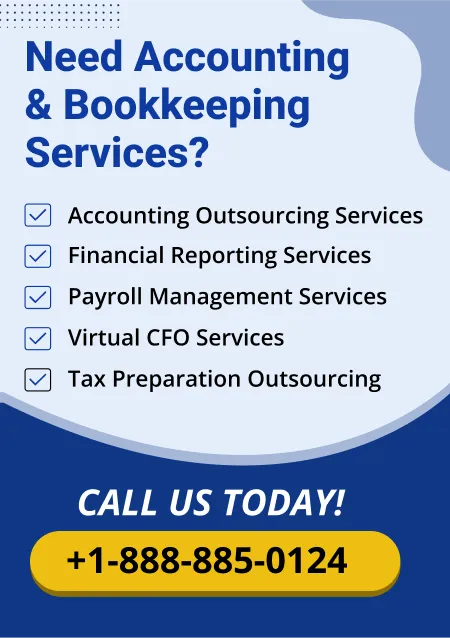Bookkeeping is the root in which any small business can carry-on their photosynthesis. When businesses take the affairs of bookkeeping seriously, they ensure enhanced cash-flow, prepare themselves for taxes and take informed decisions for a successful future. But there remains a population of businesses who still handle their bookkeeping tasks manually leading to increased discrepancies and time-consuming. Automated bookkeeping enhances the financial system of small businesses to expand effectively. Switching from a familiar process to a totally new concept takes time. But turning to an automated bookkeeping software does ensure compliance, accuracy, productivity and financial goodwill. This blog will navigate through the whole procedure of transitioning from a manual to automated bookkeeping. So that your small business can follow through the path of prosperity.
The no-nonsense benefits of Automated Bookkeeping
It's critical understand the benefits of automated bookkeeping for your business before beginning making the transition. By employing software to carry out transactions, provide reports, and maintain latest financial records, automated systems simplify financial operations. The following are a few of the main advantages:
- Time Efficiency: Automation frees up more time for you to zero in on managing your business by reducing the duration of time spent on entering data by hand.
- Accuracy: By reducing human mistakes, automated solutions assure the constant accuracy of financial data.
- Real-Time Updates: Automated bookkeeping gives you instant access to your financial information, allowing you to act quickly and sensibly.
- Cost Savings: Although software might require an initial investment, it will eventually save money due to fewer errors and increased productivity.
- Compliance: Automated bookkeeping ensures that your business remains compliant with all applicable U.S laws.
Opting for the Right Bookkeeping Software
The basis of the shift is picking out bookkeeping software. In the United States, small businesses may select from a variety of automated bookkeeping solutions, including Xero, FreshBooks, and QuickBooks. Take into account the following aspects when choosing software:
- Usability: Choose an interface that is easy to use and provides outstanding client service. Verify if the program can be integrated with other tools your business uses, such point-of-sale systems, CRM systems, or payroll services.
- Scalability: Select a system that can expand along with the business and manage a growing level of financial complexity.
- Cost: Evaluate pricing schedules to identify a solution that satisfies your budgetary constraints without sacrificing essential features.
Keep Your Financial Data handy for the Transition
It's critical to arrange and look at your present financial data before switching to an automated system. Make sure all of the information in your accounting files is accurate by seeking out any inconsistencies or duplicate entries. By doing this, you can be confident that when you switch to the new system, you have the right data to start with.
Migrate Data to the New System
It's time to move your financial data to the automated system when it has been prepared. For transferring contents of spreadsheets or handwritten ledgers, the vast majority of bookkeeping software offers thorough instructions or customer help. To make sure that account balances, past transactions, and open invoices are correctly displayed in the new system, pay close attention to them during this stage. Working with a professional bookkeeper or accountant to manage the transfer process could also be advantageous, particularly if the business has complicated financial matters.
Keeping your staff stand-by for the play
It is essential that employees engaged in bookkeeping or handling finances receive training on the freshly implemented system if they work for your business. To assist users in getting to know the functions of the system, the majority of software platforms include webinars, tutorials, and customer assistance. Providing enough training guarantees that all users are familiar with the new system and can operate it efficiently.
Monitor the Transition Period
It is going to take time to make the switch from manual to automated bookkeeping. For the initial stages, keep a tight eye on the new system to make sure things are operating as it should. Allocate time to confirm report accuracy, confirm transaction recording accuracy, and make any necessary setup adjustments. To facilitate the transition, some small businesses decide to function both the automated and manual systems simultaneously for a brief period of time.
Making best-out of Automation to promote Growth
Utilize the advantages of the automated bookkeeping system to streamline other areas of your financial management once it is up and running. Track cash flow, create financial reports, and look into performance patterns for your business with automation. Automated bookkeeping solutions provide real-time insights that can help you in making strategic decisions that increase profitability and spur growth.
Conclusion
Switching your bookkeeping ways manual to automated can work in favour of your small business. Businesses based in the U.S find automation to help them navigate through intricate federal and state laws. Provide aid in terms of time, cost and accuracy. Your business can set-out for a long-term game by employing the right automated application. This will help manage your financial records and providing training to your employees will be a crucial step. Automation plays the trick of killing two birds with one stone. Effective financial management alongwith can provide growth opportunities to your business. And in this fierce journey to success, FinoPartners can be an aid as an outsourced bookkeeping service for your business.
Read Also Bookkeeping And Accounting: Things Keep in Mind


























